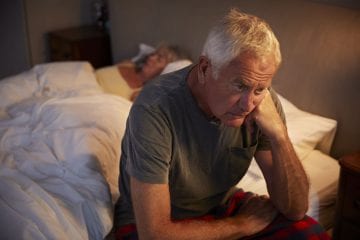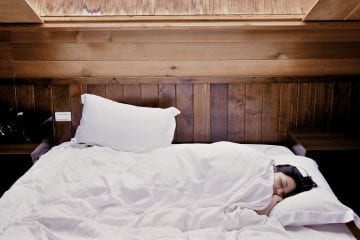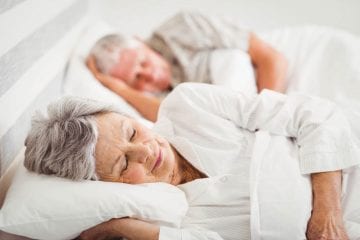In a world of 7.7 billion people we’ve learned that each of us is unique; we prefer different foods, music, TV shows, exercise (or not), and more. However, there’s one thing which every single human being agrees to be important - quality sleep. Fortunately we have some advice for you in this guide!
1. Improving the duration and quality of sleep
Sometimes improving the duration of sleep can be useless if we aren’t also considering the quality of our sleep. If we are to improve sleep as a whole, we must consider:
- Duration - the amount of time we spend sleeping every night
- Intensity - What does quality of sleep actually mean? It’s the percentage of sleeping time that we spend in REM and slow wave sleep.
- Timing - the time when we go to bed. We should go to bed at the same time every night and pay attention to our circadian rhythms.
How do we improve these three factors? Starting with the intensity, our bodies are largely in control of how much time we spend in REM sleep and slow wave sleep (which means that it’s generally out of our control). The intensity of sleep adjusts automatically depending on what the body needs. If you researched this topic, you’d find that improving nutrition, exercise, and exposure to bright light might help, but these factors affect the quality of sleep only indirectly.
Is this a bad thing? Not necessarily. With the intensity out of our control, we can focus on duration and timing. In fact, we can make it even easier by assuming that your (pesky) alarm goes off at the same time every morning. If this is true, duration will only ever change by assessing the time you go to bed the night before.
In the majority of circumstances the duration of sleep improves when we get into bed earlier. Therefore when it comes to importance, timing takes the crown for these three factors.
- Intensity is controlled by our body
- Duration is dependent on timing
- Timing is where we can have a real impact.
By getting under the covers earlier we can improve the duration and, hopefully, intensity of sleep too. Of course, this is only applicable when we wake up at a consistent time in the mornings.
2. Falling asleep quickly
Now that we’ve dealt with the three important factors that affect sleep, we come to a question that millions ask every year:
‘How do I fall asleep quickly?’
If you’re somebody who can spend two hours staring at the ceiling while constantly tossing and turning to get comfortable, we know that this is frustrating. Here are two tips for getting to sleep faster:
Power down
We aren’t suggesting that there’s a magical switch that you didn’t know existed on your back, but you can prepare for sleep more efficiently. For example, we recommend avoiding phones, computers, tablets, TVs, and other devices directly before sleep. The production of melatonin reduces due to the blue wavelength of light from these devices, and we can’t shut off when we eventually decide to go to sleep.
Turn off all devices one or two hours before you want to sleep, and do something else (remember that life existed for generations before technology; you can do it!). Why not read a book? You can learn about your favorite topic or immerse yourself in a story before sleeping.
For those who work late, this can keep us active and feeling stressed right up until the head touches the pillow. In this case utilize the relaxation techniques listed below and try apps that reduce brightness as you near your bedtime.
Take advantage of relaxation techniques
Researchers say that emotions and stress cause around half of all insomnia. Relieving this stress in some way could have a positive impact on your sleep, and this is where relaxation techniques come in. Common examples include:
- exercise
- meditation
- daily journaling
- expressing gratitude (through journaling)
- breathing exercises.
3. Getting better sleep: top habits and tips
You can introduce these habits and tips to your life to improve sleep.
Steer clear of caffeine - Did you know that your afternoon coffee could be preventing you from good sleep? If you’re someone who finds falling asleep difficult, we advise staying away from caffeine after noon. Stop as early as possible so that it gets out of your system for bedtime.
Get some sunlight - Many people don’t get the sun exposure they need. Aim for at least 30 minutes.
Get out of the bedroom - From this moment onward ensure that your bedroom promotes a sleeping environment. Remove all technology from it, stop all other functions it may serve, and use it only for sleep and intimacy. The ideal sleeping environment is quiet, cool, and dark. When you work, relax, play video games, read, and do all sorts of other things in the bedroom, your mind has no way to distinguish when it’s time for bed.
Check the temperature - the best temperature for sleeping is between 18 and 21 degrees Celsius (65-70 Fahrenheit).
Turn down the lights - Once the sun goes down, decrease full-spectrum and blue lighting as much as possible. Use lamps with soft dim light rather than full lighting.
Exercise - Exercise solves everything, right? When you wear out the mind and body, it’s easier to fall asleep because we need recuperation. Maintaining healthy weight as we age will also allow us to keep to a strong sleeping pattern.
As long as you aren’t stimulating the body and brain within the final couple of hours before sleep, research suggests that fit middle-aged adults sleep much better than people who are considered overweight. However, if you exercise too close to bedtime, the nervous system is still active, and you’ll struggle to relax.
Avoid alcohol - Insomnia has led to many alcohol problems, so don’t become the next to fall down this slope. While alcohol can help you drift off, it also reduces the quality of sleep and delays the REM cycle. What does this mean? You will wake up feeling tired. Then you’ll do the same the next night and it’s an endless cycle that leads to fatigue and ill health.
Cut chewing tobacco and cigarettes - While exercise solves everything, tobacco seems to cause everything. Sadly, poor sleep is yet another side effect of the nasty habit.
Try sound aids - Finally, some people need absolute silence to sleep…something that’s often out of our control. If the neighbours are having a party, try ear plugs. Failing that, add white noise to the room with a fan or an app.
Improve your sleep today
Try our advice and start your journey to better sleep today. A good night’s sleep is often the difference between strong and weak performance whether it’s for businesspeople, athletes, cleaners, or anybody else. Get the sleep you need!



